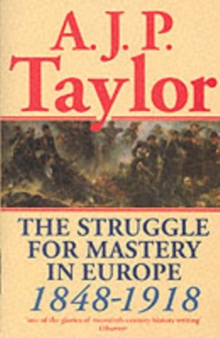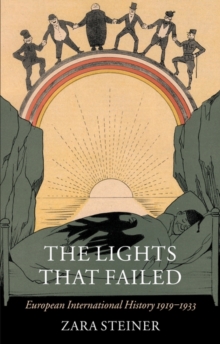
The Shock of America : Europe and the Challenge of the Century Paperback / softback
by David (Senior Adjunct Professor, Johns Hopskins University, School of Advanced Internationa Ellwood
Part of the Oxford History of Modern Europe series
Paperback / softback
Description
The Shock of America is based on the proposition that whenever Europeans of the last 100 years or more contemplated those margins of their experience where change occurred, there, sooner or later, they would find America.
How Europeans have come to terms over the decades with this dynamic force in their midst, and what these terms were, is the story at the heart of this text.
Masses of Europeans have been enthralled by the real or imaginary prospects coming out of the USA.
Important minorities were at times deeply upset by them.
Sometime the roles were reversed or shaken up. But nobody could be indifferent for long. Inspiration, provocation, myth, menace, model: all these categories and many more have been deployed to try to cope with the Americans.
Attitudes and stereotypes have emerged, intellectual resources have been mobilised, positions and policies developed; all trying to explain and deal with the kind of radiant modernity America built over the course of the twentieth century.
David Ellwood combines political, economic, and cultural themes, suggesting that American mass culture has provided the United States with a uniquely effective link between power and influence over time.
The book is structured in three parts; a separation based on the proposition that America's influence as an unavoidable force for or against innovation was visible most conspicuously after Europe's three greatest military-political conflicts of the contemporary era: the Great War, World War II, and the Cold War.
It concludes with the emotional upsurge in Europe which greeted the arrival of Obama on the world scene, suggesting that in spite of all the disappointments and frictions of the years, the US still retained its privileged place as a source of inspiration for the future across the Western world.
Information
-
Available to Order - This title is available to order, with delivery expected within 2 weeks
- Format:Paperback / softback
- Pages:600 pages
- Publisher:Oxford University Press
- Publication Date:05/05/2016
- Category:
- ISBN:9780198778837
Information
-
Available to Order - This title is available to order, with delivery expected within 2 weeks
- Format:Paperback / softback
- Pages:600 pages
- Publisher:Oxford University Press
- Publication Date:05/05/2016
- Category:
- ISBN:9780198778837










